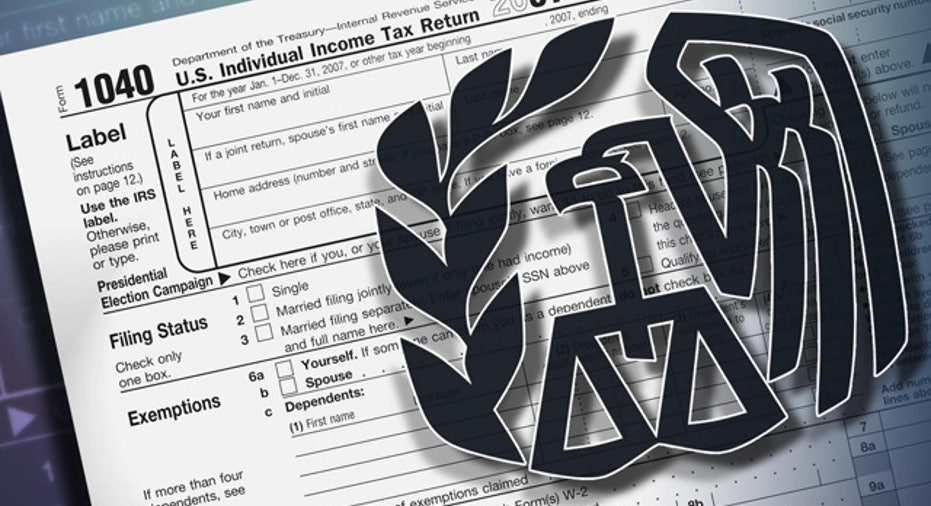Attention IRS: Here’s How You Fix Your Budget Mess

Last month the House Appropriations Committee passed legislation cutting the IRS’s budget by $600 million. IRS Commissioner Doug Shulman considers this a deep cut and is concerned about the agency’s ability to enforce tax law and provide adequate services.
Well, Mr. Shulman, I believe the IRS needs to do something that should be required of each and every federal agency: review its current budget carefully and cut waste. And if you need a little help with this, I’ll be glad to oblige. I have been reading reports by the Treasury Inspector General for Tax Administration (TIGTA) about some of the wasteful activities of the IRS. Here are some areas our dear Commissioner should examine:
Furniture Storage Contract. As of September 2010, the IRS had 22,486 items that had been in storage for at least 18 months without any activity, TIGTA found. The amount of time these items remained unused, combined with a lack of information on the future need, age or condition of these items could mean these items will never be used again. According to the reports, the rent cost associated with the 34,194-square feet of warehouse space is approximately $862,000 annually. And the five-year, $90 million contract with URS Federal Technical Services, Incorporated (URS) covers furniture moving and storage, inventory management and property and locksmith repairs.
Here’s a thought: Donate all of the used furniture and equipment to the Small Business Administration to give to entrepreneurs. This takes care of at least 1/6 of the budget cut and will help our small businesses.
Better Regulation of IRS Employee Credit Cards. Like other federal agencies, the IRS provides credit cards to certain employees for purchases of less than $3,000. These purchase cards are used for items such as office supplies, training, and other low-cost items. IRS employees are provided separate credit cards to use for travel.
According to the TIGTA, from Sept. 1, 2007 through March 31, 2009, the IRS’s 4,270 purchase card holders made more than 174,000 purchases totaling more than $80 million using purchase cards.
TIGTA officials reviewed the purchase card program and found numerous instances of cardholders making purchases without necessary approvals and verification of funding. It also discovered 2,955 purchases that were potentially split into two or more transactions to circumvent micro-purchase limits along with purchases made from improper sources.
Here’s a thought: Develop some controls to curb this abuse.
Illegal Workers Receiving Tax Credits. Individuals who are not authorized to work in the U.S. received billions of dollars from the IRS last year in a refundable tax credit based on earned income called the Additional Child Tax Credit (ACTC). The study, conducted by the Treasury Inspector General for Tax Administration (TIGTA), found that claims for this credit by these individuals have escalated sharply to $4.2 billion in 2010 from $924 million in 2005.
The IRS issues individual taxpayer identification numbers, or ITINs, to individuals who do not have Social Security Numbers and are not authorized to work in the U.S. to facilitate their filing of tax returns. But federal policy is unclear as to whether such individuals are entitled to receive refundable tax credits. Federal law denies such individuals the Earned Income Tax Credit and most Federal public benefits. IRS management’s view is that the law does not provide sufficient legal authority for the IRS to disallow the ACTC to unauthorized workers.
Here’s a thought: Shut it down! Congress loves making new tax laws every 20 minutes anyway, so why not one to cover this abuse? Disabling the ACTC for illegal workers alone would more than resolve any budget deficiency.
Controls need to be implemented to police other credits taken on tax returns as well, such as the Qualified Motor Vehicle Credit and the First Time Home Buyer Credit. And check out the problem with Education Credits – at least $550 million in erroneous credits were given to folks between Jan. 1 and May 28, 2010, who did not qualify, and get this: 250 prisoners erroneously received $255,879 in education credits during that same period.
Closure of the Private Debt Collection Program. It was a good program. The IRS jobbed out collection activity on low-yield delinquent tax cases to private collection agencies which collected a cool $98.2 million. In March 2009, IRS Commissioner Doug Shulman shut it down and all open cases were returned to the IRS.
TIGTA reviewed a statistical sample of 62 cases returned in Fiscal Year 2009 and found that collection actions were not taken for 29 (47%) of the 62 cases. These cases were not selected for collection action due to collection policies and inventory assignment practices. TIGTA estimates that potentially $30.7 million in collections will remain as outstanding liabilities. TIGTA also estimates the IRS may not collect an additional $103.2 million per year, or $516 million over the next five years, from similar cases in its inventory that would have been assigned to the PDC Program.
Here’s a thought: Use the money saved from giving unauthorized tax credits to fund collection staff to work these cases. Or job out the collection activity again.
While the IRS is cleaning house maybe every other federal and state agency should do the same. Government has gotten far too complex, far too intrusive on our freedoms, and much too wasteful. A good scrubbing down is warranted and should be demanded by the American people.
Bonnie Lee is an Enrolled Agent admitted to practice and representing taxpayers in all fifty states at all levels within the Internal Revenue Service. She is the owner of Taxpertise in Sonoma, CA and the author of Entrepreneur Press book, “Taxpertise, The Complete Book of Dirty Little Secrets and Hidden Deductions for Small Business that the IRS Doesn't Want You to Know.” Follow Bonnie Lee on Twitter at BLTaxpertise and at Facebook.



















